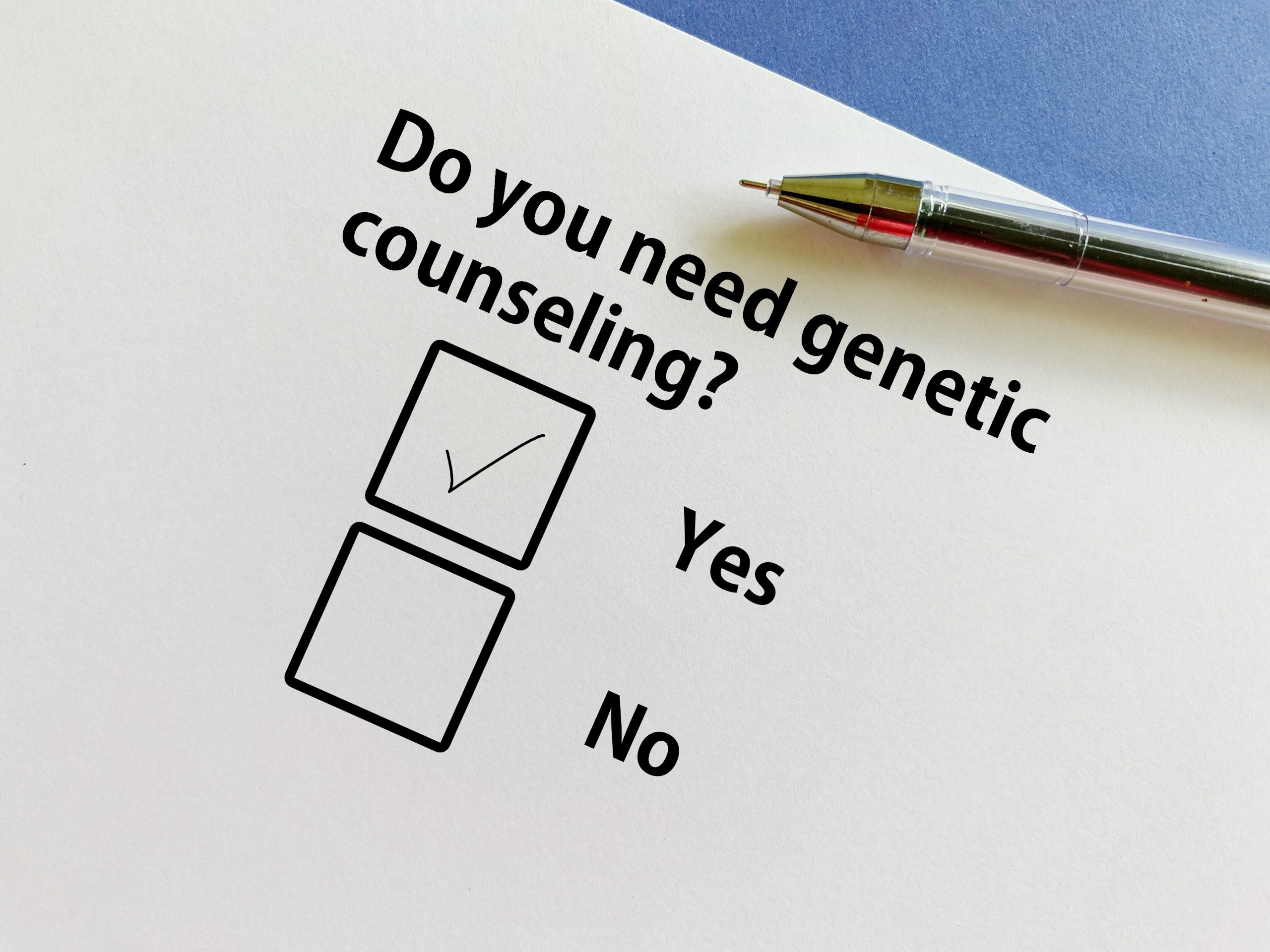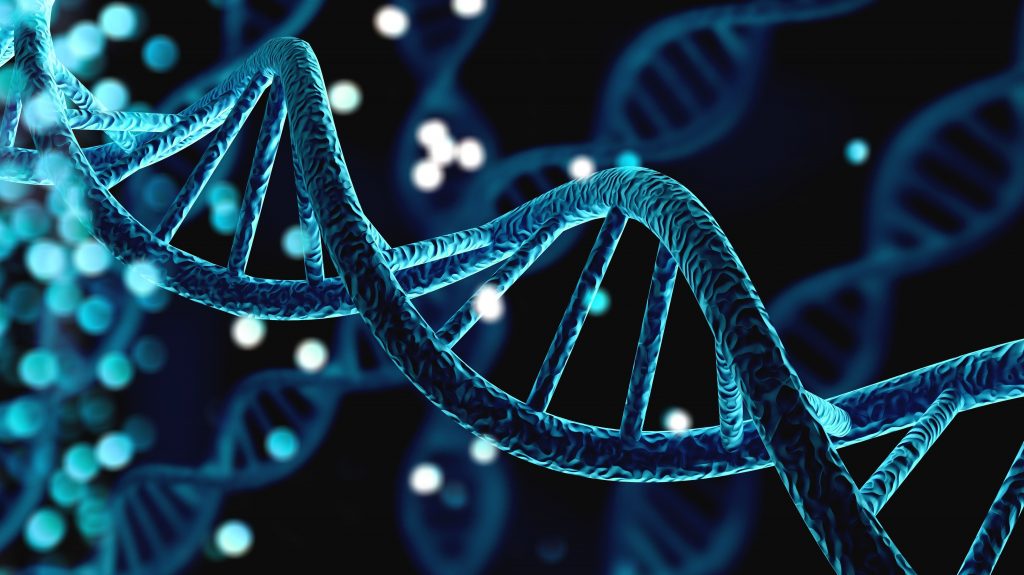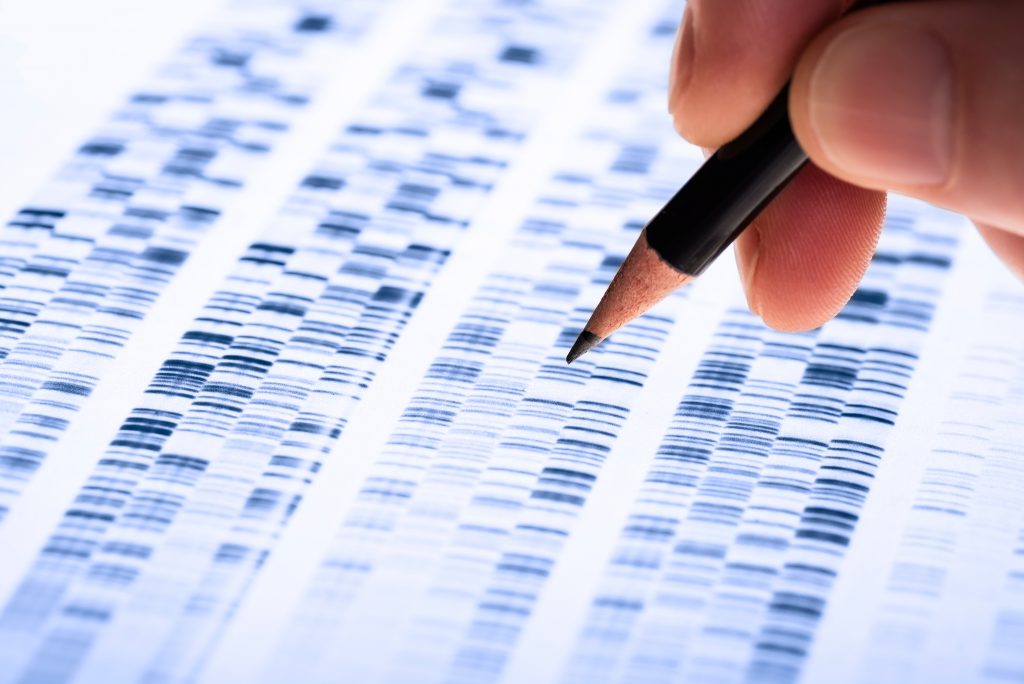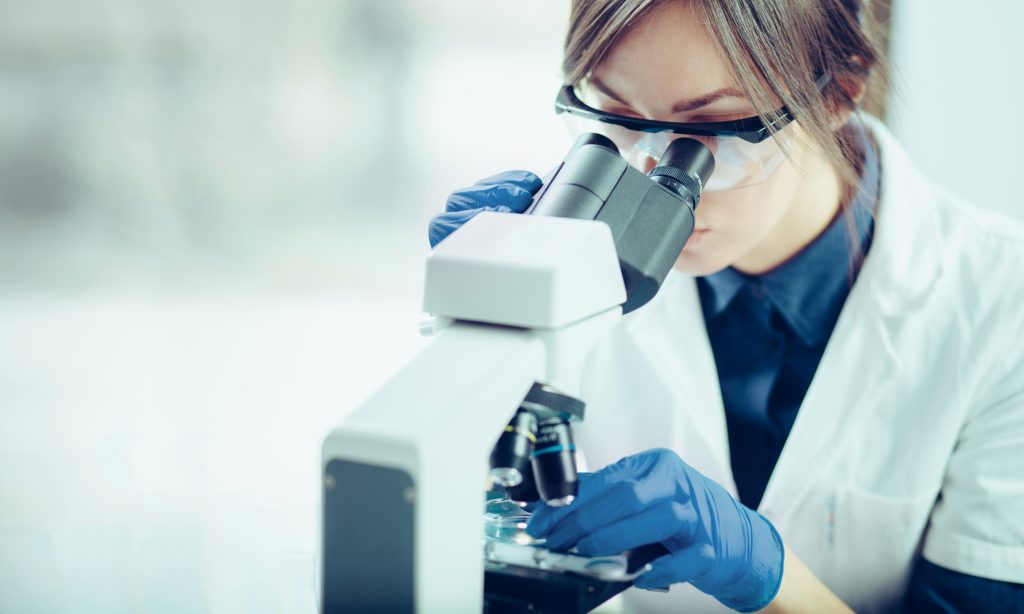The genetic counseling field has expanded over the years. Individuals wanting to find out conditions that run in their family. Couples wanting a healthy baby. There are many reasons to seek help from genetic counselors. And as the field expands, hiring genetic counselors surges.
To become a certified genetic counselor you need specific skills and training. Genetic counselor schooling is unique and specific. There are certain degrees that can help you fulfill genetic counselor requirements needed to land a job. But what degree do you need to be a genetic counselor? We answer this question and more as we discuss how to become a genetic counselor.
What Do Genetic Counselors Do?
Genetic counselors have specialized training in the field of human genetics. They look at family health history to assess the risk of an inherited condition, such as a birth defect. They use their expertise in genetic testing to counsel patients about genetic diseases and birth defects. They work in various settings, such as doctor’s offices and diagnostic laboratories.
Daily Tasks for Genetic Counselors
Most genetic counselors work alongside other medical health professionals, such as:
- Educators
- Nurses
- Physicians
- Specialists
But genetic counselors also take on the duties of each of these medical professionals. They counsel patients, provide education, and guide medical care. In a typical day, genetic counselors study genetic disorders and perform genetic tests. They look for inherited health risks and determine risks for certain diseases. When needed, they provide guidance and support on genetic diseases.
Genetic counselors also advocate for their patients. They work on their behalf to ensure genetic counseling gets covered by insurance. In some cases, genetic counselors must file appeals and provide documentation to support human genetics findings.
Specialty Areas in Genetic Counseling
Many genetic counselors choose to specialize in an area of human genetics. Others provide general care. But the most common specialty areas for genetics counselors are:
- Cardiology
- Oncology
- Neurology
- Pediatrics
- Preconception
- Prenatal
Genetic Counselor Education Requirements
Genetic counseling is a rewarding career, but you need specific genetic counselor education. If you want to know how to be a genetic counselor, follow these steps.
Step 1: Graduate from High School
The first step on how to become genetic counselor is to graduate from high school. You need a high school diploma, GED, or equivalent to go get admitted to college. If you’re interested in genetic testing or studying genetic conditions at a young age, take classes that will benefit your education and career.
Aspiring genetic counselors take biology, chemistry, and math in high school. Advanced placement courses can give you college credit and deepen your knowledge of the subject.
Step 2: Get a Bachelor’s Degree
According to the American Board of Genetic Counseling (ABGC), you can major in any subject and work in genetic testing. But there are certain majors that prepare you for a genetic counseling career. We discuss the best majors for medical genetics later in the article.
A bachelor’s degree is necessary to work in this field. Science and math courses help lay a foundation for your continued education. Most students interested in genetic counseling major in biochemistry, biology, or chemistry.
Step 3: Earn a Master’s Degree
Once you have a bachelor’s degree from an accredited college or university, it’s time to get a master’s degree. Look for master’s degree programs accredited by the Accreditation Council for Genetic Counseling. ACGC is the accreditation body for graduate programs in genetic counseling.
A typical master’s degree program takes two years to finish. Like the undergraduate degree, your graduate degree program should have accreditation credentials from ACGC. During your graduate studies, you will take courses that prepare you for the career. Courses in most master’s degree programs cover topics such as:
- Developmental anatomy
- Healthcare principles
- Genetic testing procedures
- Genetics counseling and genetic diseases
- Psychosocial counseling
Step 4: Pass the Board Certification Test
Candidates with ACGC-accredited degrees can sit for the American Board of Genetic Counseling (ABGC) certification. This is an industry standard exam for genetic counselors. Recent college graduates can take the exam twice a year, in February or August. The test takes four hours and consists of 200 multiple-choice questions.
Topics on the exam include:
- Counseling
- Ethics
- Genetic disorders and birth defects
- Genetic testing options
- Research
- Risk assessment
The test also covers competent genetic counseling techniques and other genetic testing protocol. To become certified, you must pass this exam. Upon completing the test, you receive your score immediately. If you earn a passing score, you can use the title Certified Genetic Counselor.
Step 5: Apply for State Licensure
About 50% of states require genetic counselors receive licensing. The National Society of Genetic Counselors publishes a list of states that want licensing for those working in medical genetics. To receive licensing, you need to pass a background check, submit work experience for the past five years, and provide transcripts. You must have both a bachelor’s and master’s degree. Other requirements vary by state.
Majors for Genetic Counselors
Genetic counselors hold bachelor’s degrees. Getting this degree is an important step toward a career in genetic counseling. But most schools don’t have genetic counseling programs. Genetic counseling is not a common major.
If your college or university does not have a genetic counseling program, consider majoring in one of these disciplines.
Biology
Biology is a popular undergraduate degree for aspiring medical professionals. Those interested in genetic counseling can benefit from this major. Studies offer a foundation in many biological concepts. Courses cover topics such as:
- Cell biology
- Evolution and ecology
- Experimental design
- Research methods
- Statistical analysis
Students learn how to read and interpret scientific literature. They research, design, and carry out their own experiments. The lab work can help you in a graduate genetic counseling program, especially genetics and molecular biology labs.
Chemistry
Chemistry majors explore the different ways elements on the periodic table combine and react. The major teaches students how to conduct research experiments and analyze data. Students also learn how to solve complex scientific problems. These skills can help in genetic counseling programs at the graduate level and in a career.
Chemistry students take courses like:
- Biochemistry
- Inorganic chemistry
- Organic chemistry
- Physical chemistry
Psychology
A large number of social science majors become genetic counselors. Psychology is one of the popular majors for this career. As a psych major, undergraduates take courses such as:
- Cognitive science
- Research methods
- Social psychology
- Theories of personality
In a psychology program, you learn how to analyze data and draw conclusions from research. These skills are helpful in your genetic counseling career studying genetic conditions. Psychology can also prepare you with useful techniques on how to counsel patients.
Statistics
Statistics is a major for students thinking about a career in medical genetics. Aspiring genetics counselors find statistics helpful in graduate school coursework. As a statistics major, you learn how to analyze, gather, and interpret data. Coursework covers topics like:
- Data analysis
- Probability
- Research methods
- Theory of statistics
As a statistics major, you’ll take plenty of math and computer science courses. Also, concentration options in areas like biology and health science are available in some programs.
How Long Does It Take to Become a Genetic Counselor?
Genetic counselors need specialized training. The education journey isn’t a short one. You need both bachelor’s and master’s degrees. Undergraduate genetic counseling programs take four years. You can major in anything you want as long as you have a foundation in math and science. Popular majors include biology and chemistry.
Armed with a bachelor’s degree, plan on another two years in a master’s degree program. While in graduate school, you will complete clinical observations and reviews of existing genetics research. Clinical rotations are also a component of master’s degree programs in genetic counseling.
The Accreditation Council for Genetic Counseling (ACGC) should accredit both degree programs, as they help qualify you for certification and licensure.
Qualities Genetic Counselors Should Have
Genetic counselors work with different groups of people. They analyze family health history and look at risks and outcomes. They also provide competent genetic counseling. To do these skills they need training and education. But some qualities that genetic counselors should have aren’t taught in the classroom. Here’s a look the qualities that every genetic counseling professional should have.
Analytical Skills
Analytical skills are important for genetic counselors. They can help you make informed decisions concerning patient care. Genetic counselors understand problems and analyze different outcomes to determine viable solutions and inherited risks. Having the ability to draw conclusions from complicated findings helps.
Compassion
Genetic counselors work with patients and their family. When a patient seeks advice about serious illnesses and diseases, a genetic counselor helps. Since they work with patients about sensitive healthcare issues, they should have compassion.
Critical-thinking Skills
As a genetic counselor, you must analyze and interpret laboratory findings and results. You then communicate these findings with patients and their family. Good genetic counselors apply their genetics knowledge to assess inherited risks of a genetic disease. These tasks demand good critical-thinking skills.
Effective Communication Skills
When a genetic counselor gathers complex findings, they must communicate them to their patient and family members. Sometimes, a genetic counselor must simplify scientific findings and relay them to people outside the medical profession. Having strong communication skills helps.
Good Decision-making Skills
There are times when a genetic counselor must make quick medical decisions. Based on their findings, they decide what medical care to provide. Having good decision-making skills helps.
Pay for Genetic Counselors
Genetic counselors earn a median salary of $80,150/year. But like many other professionals in the healthcare industry, they stand to earn millions over the course of their working career.
The Bureau of Labor Statistics (BLS) reports the highest 10% of genetic counselors earn over $121,000/year. But there are certain factors that impact earnings for genetic counselors. The main impacts are where you work (industry type) and where you live (geographic location). Let’s take a closer look.
The BLS reports four top-paying industries for genetic counselors. These are industries that pay well after becoming a genetic counselor. High-paying industries for this profession include:
- Medical and diagnostic laboratories: $95,870/year
- Local, private, and state hospitals: $79,810/year
- Physician’s offices: $79,360/year
- Local, private, and state colleges, professional schools, and universities: $79,100/year
High-Paying States and Cities for Genetic Counselors
Where you live also impacts earnings for genetic counselors. The BLS lists 5 top-paying states. Becoming a genetic counselor in these states can lead to good pay.
- California: $131,800/year
- Massachusetts: $114,330/year
- Vermont: $105,190/year
- Connecticut: $104,990/year
- Colorado: $103,440/year
There are also high-paying cities for genetic counselors. If you’re becoming a genetic counselor in these areas, you can expect high pay.
- San Francisco-Oakland-Hayward, California: $147,060/year
- Sacramento-Roseville-Arden-Arcade, California: $144,970/year
- San Jose-Sunnyvale-Santa Clara, California: $134,210/year
- Los Angeles-Long Beach-Anaheim, California: $110,930/year
Job Outlook for Genetic Counselors
The field of genetic counseling shows rapid job growth. If you’re interested in becoming a genetic counselor, now is a good time. The BLS projects employment to increase 18% through 2031. This is a higher growth rate than jobs for other medical professionals.
While the job growth is good, the profession itself is small. The 18% growth will result in about 300 job openings for genetic counselors each year for the next decade. Aspiring genetic counselors will face competition for jobs.
To help yourself stand out as a candidate for genetic counselor jobs, you will need to prove your genetic testing skills. An undergraduate degree and graduate degree help. But you need more than the degrees. You need research experience in areas like:
- Genetic counseling
- Genetic diseases
- Genetic disorders
- Genetic testing
- Human genetics
You can gain research experience in college or in internships with diagnostic laboratories and hospitals. Genetic counseling programs offer students experience working alongside professors. Some of which make ongoing technological innovations and contribute to the field through research.
Work Environment for Genetic Counselors
After learning what undergraduate degree, major, and master’s degree you need for a career in genetic counseling, you should know what the work environment is like. The BLS lists the largest employers for genetic counselors. These include hospitals, physician offices, and medical and diagnostic laboratories.
Colleges are another top employer for genetic counselors, employing about 10% of the profession. But you also find genetic counselors in government agencies and as self-employed workers. In government agencies, genetic counselors work in research.
Genetic counselors work with patients, family members, and other healthcare professionals. As stated above, they assess individual or family risk of inherited genetic conditions. Conditions include birth defects or other genetic disorders.
To work in this job, you need skills and training. The field continues to grow. Now is a good time to get started in your career in genetic counseling.
BDP Staff
May 2023
Related Resources:
- 30 Best Bachelor’s in Psychology Degrees Online: Small Colleges
- 30 Best Bachelor’s in Sociology Online Degrees
- 30 Best Online Bachelor’s in Psychology Programs at Private Colleges
- What Is the Best Degree Path to Becoming a Social Worker?




